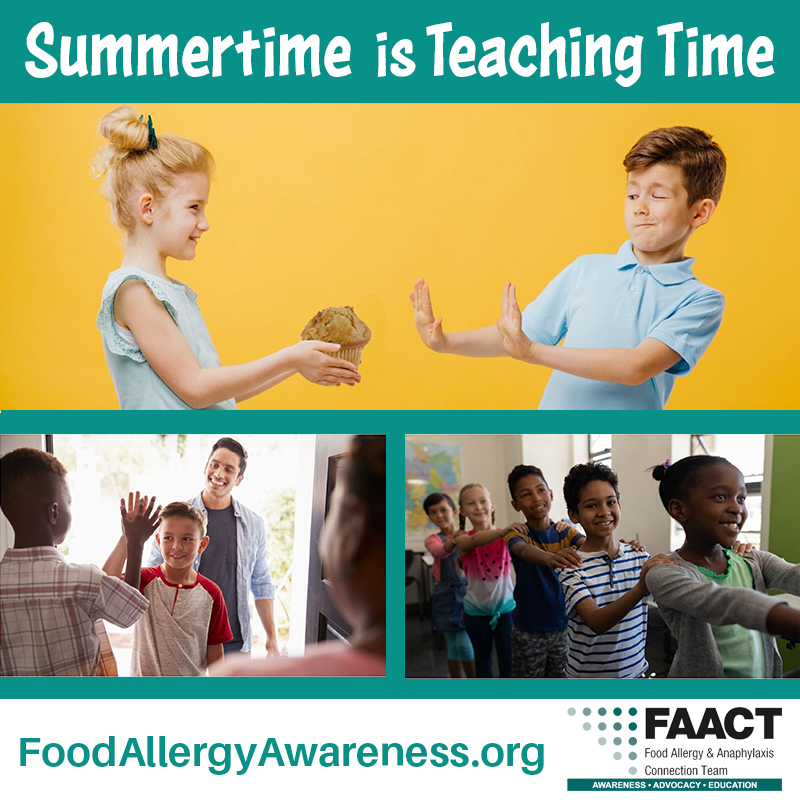Summertime Is Teaching Time

by Caroline Moassessi, FAACT Vice President of Community Relations
Thank goodness for summer. Picnics, friends, BBQs, and most of all, a break from school! But that doesn’t mean we need to take a break from teaching our children food-allergy life skills. I think about the things I’ve done for my now-college-age kids that are second nature for me—but possibly absent in their lives when I’m not around. Do they call manufacturers to check on new products and read the label on food they’ve eaten a million times in case there was a recipe change without notice? Summer is a great time to teach your family age-appropriate food allergy management skills, gently and naturally, with a few tips and tools from FAACT.
At what age do you start teaching? The answer is any age—it’s never too late or too early to start. Even if your child is not ready to take on these responsibilities today, readying them to take over one day is golden. Following are a few age-appropriate activities to help you get started.
Pre-school to Kindergarten: All you need is a few household items and an upbeat attitude, and you’re ready to teach lifelong skills!
Get the Sillies Out! Learn to say, “No Thank You!”: Parents and kids dress up and switch roles, playing a relative or well-meaning adult offering potentially unsafe food. Children learn to say no and ask questions. We dare you to try this activity without giggling!
It’s Playdate Time: Roleplaying helps children know what to expect from playdates, from packing safe snacks and emergency medications to walking kids through a fun visit with friends.
Another tip for preparing children for successful playdates: Read a book together about life with food allergies, then share a copy to educate a future playdate’s family.
Kindergarten through Elementary School: As kids take small steps toward independence, it’s the perfect time to teach them about finding and using their powerful food-allergy voice!
Let’s Rehearse Lunchtime at School: This activity can be adjusted for your child's age. Lunch at school is a significant milestone, and this activity can help reduce anxiety and help children feel empowered to self-manage lunchtime with their buddies.
Roleplay for Classroom Scenario: This activity teaches kids how to pivot and manage an unexpected classroom situation involving jellybeans. It’s important to show children that these things do happen and they have the power to handle it.
Middle to High School: Older students might feel silly doing role-play. If so, talk through potential scenarios and encourage your student to think about what they will do when things don’t turn out as planned. Ask them to consider what problems might arise and how they can pivot to stay safe.
Restaurant Play at the Allergy Kitchen Café: This activity focuses on dialog and how to speak and work with servers. This is a fun exercise for children/teens of every age as they explore communication and judgment and get comfortable speaking up.
Transitioning Healthcare Responsibility, a Roadmap for Teens and Parents: This activity is more of a guide on slowly passing the responsibility to your child of making doctor appointments and leading medical discussions. This could be one of the most critical activities where you can honestly discuss your child’s comfort levels and discover areas that might need extra teaching and time.
Tailor your teachings to your unique child. Everyone has their own schedule for when a life skill or responsibility is appropriate.

